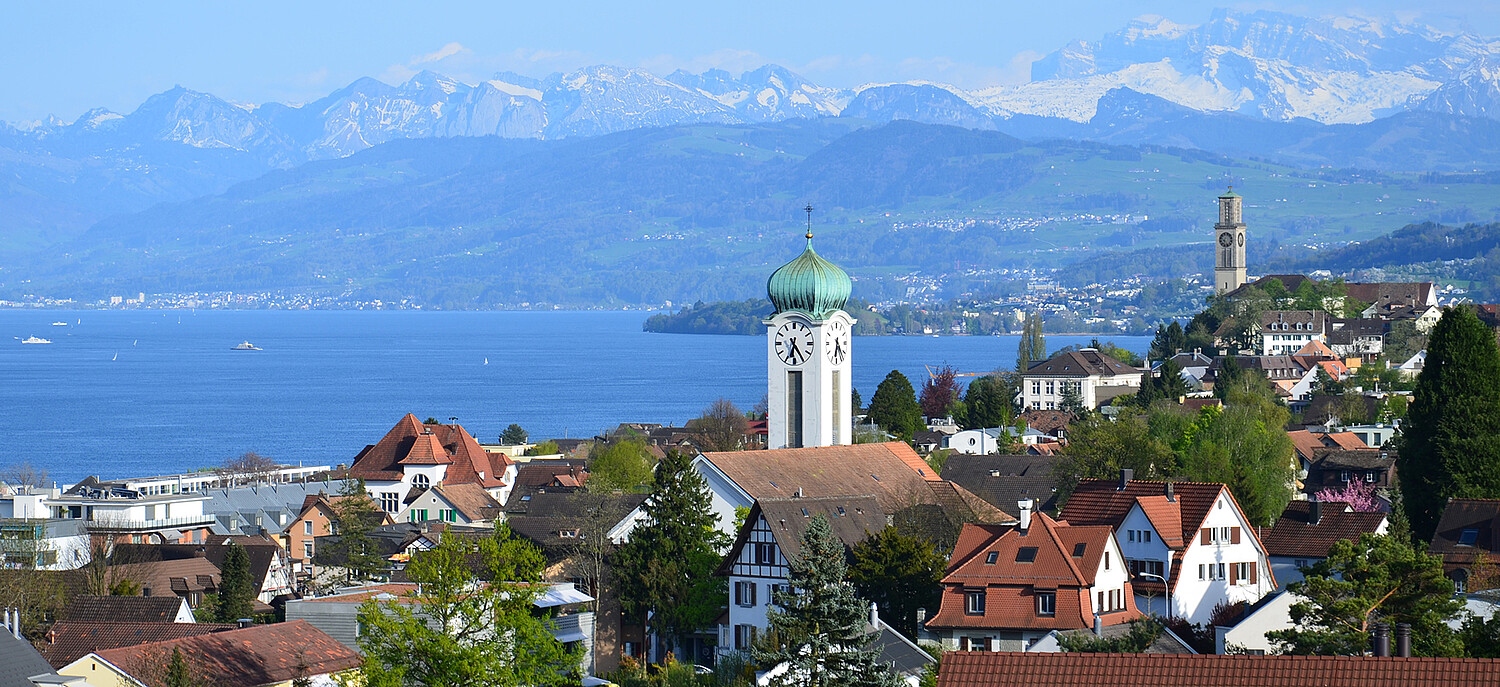
Innovation attuned to the population
Developments like the energy transition can trigger concern and resistance within society. Through a novel approach to citizen engagement, ZHAW is supporting the municipality of Thalwil in gaining broad acceptance for its energy strategy.
How would it be if citizens were to take out energy sponsorships for photovoltaic installations on public buildings? Is there a need for local funds to support energy-related renovation measures in private homes? These are the type of questions that the residents of Thalwil have been discussing in their World Café. Their meetings are part of the EU research project “Leveraging Leadership for Responsible Research and Innovation (RRI) in Territories” – the framework within which ZHAW is supporting Thalwil on its path toward sustainability. “Citizen engagement is key to ensuring the transformation is aligned to the values and needs of society,” says project manager Florian Roth of the ZHAW Center for Corporate Responsibility. The research project is testing the suitability of the RRI approach (see box) for innovation processes at municipality level. Regions in Bulgaria, Spain and Greece have also made themselves available as test territories. “Each location is working on a different challenge,” Roth explains. “And we are benefitting enormously from the intercultural discourse.”

Taking concerns seriously
Martin Schmitz, Head of Environment and Sustainability in Thalwil, was at first not familiar with the RRI approach. He soon realised, however, that the municipality was already applying the fundamental elements of RRI, including weighing up the potential consequences of the energy transition and recognising the importance of an adaptable energy strategy. “It was the systematic aspect that was new,” he says. “The fact that we should not invite people to meetings at random, but should specifically involve all parts of society.” The municipality hopes that the cooperation will enable the energy transition to proceed more smoothly, since the stakeholders will be involved in the process and their concerns are taken seriously.
Circular economy desired
ZHAW has conducted a Delphi survey in order to determine where Thalwil stands as far as the energy transition is concerned. This multi-stage survey process helps establish a consensus among experts and the population. Two results surprised Schmitz: “The residents want the municipality to assume the function of a role model and want it to boost the circular economy and offer plastics recycling.” The researchers have discussed the results with the interest groups in formats such as the World Café. During this process, it became evident that the introduction of 30 km/h speed zones through Thalwil citizens’ initiatives worked better than the top-down introduction by the municipality. “We have discussed how we can deploy this bottom-up process in other areas too,” says Roth. PV installations, for example, could be financed by citizens taking out energy sponsorships rather than by the municipality. “That would have a two-fold effect – relieving the burden on the municipality and boosting the population’s acceptance through their involvement,” says Roth.
Energy strategy as a democratic decision
Now that the first half of the three-year research project has been completed, various different approaches have been pinpointed that both experts and residents regard as meaningful and appropriate. It is now a matter of breaking these down into concrete measures and establishing priorities. These measures will subsequently be submitted to the Municipal Council and the energy strategy implemented on the basis of democratic decisions. For political scientist Roth, it is the longer-term effects of RRI that hold particular appeal. “What would delight me most is if, in 15 years’ time, someone were to say that their commitment in the municipality was due to their participation in the present World Café,” he says grinning.
Responsible Research and Innovation
The Responsible Research and Innovation (RRI) approach is based on the active involvement of representatives from politics, science, business and civil society at all stages of innovation development. The method helps to better align innovations to the values and needs of society. It serves to anticipate risks and controversies and to promote broad acceptance. This instrument also promises gains over the long term, including the promotion of gender equality, by giving everyone a say.
0 Comments
Be the First to Comment!